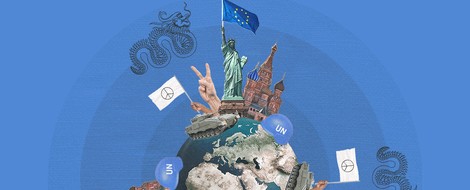Your podcast discovery platform
Curious minds select the most fascinating podcasts from around the world. Discover hand-piqd audio recommendations on your favorite topics.

piqer for: Technology and society Global finds Globalization and politics
Emran Feroz is an Afghan-Austrian journalist currently based in Stuttgart, Germany. He is regularly writing from Afghanistan, often focusing on the Middle East, Central Asia, drone warfare, refugee policies and human rights. Emran is writing in both German and English. His work has already appeared in international media outlets such as Al Jazeera, The Intercept, Alternet, The Atlantic or the New York Times and in various German and Austrian news papers and magazines.
The Promise Of Muslim Communism
Worth-reading piece on the history of Islam and Communism.
Many people believe that the roots of the Islamic religion and Communism contradict each other.
However, not all shared this opinion, as this great New York Times Op-Ed makes clear.
There was even a time when in some parts of this world, like Indonesia, Communists and political Muslims joined forces to fight against oppression and colonialism.
In fact, some leftists believe until today that the Islamic prophet Muhammad represented socialist values, such as protecting the poor and equality.
Nevertheless, a real alliance between Islam and Communism was not to be, as the article describes very clearly:
"The strength of Communism, as a movement, was its ability to mobilize laborers to fight for better wages and working conditions through unions, whether in oil boomtown Baku or the plantations of Java and Sumatra. But as a form of government, Communism meant one-party rule, a command economy with collectivized agriculture and party-state control over all spheres of social life — including religion."
At the same time, Islam (or "Islamism"/"political Islam") was much more complex and flexible:
"Islamism, by contrast, was a much broader and enduringly more open-ended and ambiguous basis for political engagement. In Java and elsewhere, “Islam” provided a banner for Muslim merchants to contest economic encroachment by non-Muslims and build an infrastructure for organizing in the countryside, largely through Islamic schools. Politically, it was a supple notion: Islamist scholars and activists could be for colonialism, Communism or capitalism."
Last but not least, many Muslims have not forgotten what happened to them during Communist dictatorships. Examples for that are the mass murder and expulsion of Chechen Muslims in the former USSR or the crimes of the Afghan-Communist government during the 1980s.
